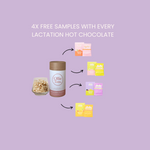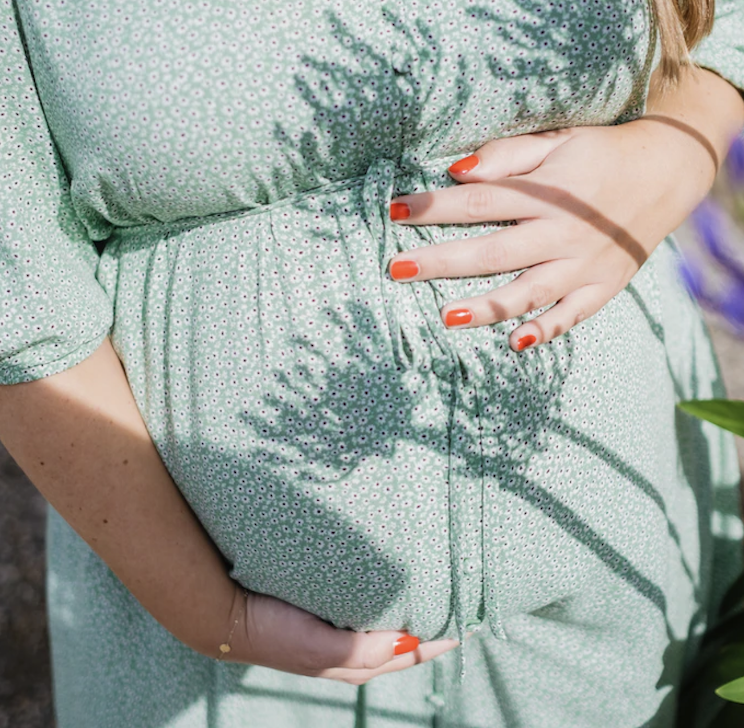Pregnancy brings about profound changes in a woman’s body, making proper hydration a critical part of maternal health. However, many expecting mothers fall prey to common pregnancy hydration myths surrounding water intake, potentially putting themselves and their babies at risk. In this article, we will debunk these misconceptions, reveal science-backed hydration facts, and offer practical advice for a healthy pregnancy.
Why Hydration Matters During Pregnancy
Key Functions of Water for Maternal & Fetal Health
Water is essential for every biological function, and during pregnancy, its importance is amplified. It plays a key role in forming amniotic fluid, supporting fetal circulation, regulating body temperature, aiding digestion, and ensuring optimal blood volume.
How Pregnancy Changes Fluid Needs
Pregnancy increases a woman’s blood volume by about 50%, raising the need for fluids. Additionally, hormonal changes and metabolic shifts result in more water being used for waste elimination and fetal development.
Risks of Dehydration During Pregnancy
Dehydration during pregnancy can have serious consequences. Common risks include:
-
Headaches and fatigue
-
Constipation and urinary tract infections (UTIs)
-
Preterm labor
-
Neural tube defects in the baby
-
Low amniotic fluid levels
Benefits of Staying Properly Hydrated
Maintaining good hydration provides benefits such as:
-
Better circulation: Ensures adequate oxygen delivery to the baby.
-
Digestive health: Prevents constipation, a common pregnancy complaint.
-
Healthy amniotic fluid levels: Vital for fetal protection and development.
-
Enhanced energy levels: Reduces fatigue and lightheadedness.
Common Sources of Hydration Beyond Water
While water is the gold standard, hydration can also come from:
-
Fruits and vegetables (like watermelon, cucumber, and oranges)
-
Herbal teas (with doctor’s approval)
-
Coconut water
-
Milk and smoothies
-
Soups and broths
Myth #1: You Only Need Eight Glasses of Water a Day During Pregnancy
Origin of the “8 Glasses a Day” Rule
The “8x8 rule”—eight 8-ounce glasses of water per day—originated decades ago as a simple hydration guideline. However, it doesn’t account for individual factors, especially during pregnancy.
How Pregnancy Changes Fluid Requirements
Pregnancy increases your need for fluids due to hormonal shifts, increased blood volume, and the demands of fetal growth. The body requires more than the standard “8 glasses” rule to support these changes.
Recommended Daily Water Intake for Pregnant Women
Current research suggests that pregnant women should aim for 10-12 cups (2.3 to 2.8 liters) of fluids daily, depending on individual needs.
Factors That Influence Hydration Needs
-
Climate: Hot, humid environments increase fluid loss.
-
Physical activity: Exercise raises hydration requirements.
-
Health conditions: Issues like gestational diabetes or vomiting can increase water needs.
Practical Tips for Meeting Pregnancy Hydration Needs
-
Carry a reusable water bottle throughout the day.
-
Set phone reminders to drink regularly.
-
Infuse water with fruit or herbs for variety.
-
Include high-water foods in snacks and meals.
Myth #2: You Should Only Drink Water When You Feel Thirsty
Why Thirst Isn’t Always a Reliable Indicator During Pregnancy
Pregnancy can dull the body’s thirst cues, meaning you might not feel thirsty until you’re already mildly dehydrated.
The Role of Hormones in Altering Thirst Signals
Hormonal shifts in pregnancy, especially involving progesterone and vasopressin, may impair the thirst mechanism and delay the body’s call for hydration.
Preventive Hydration vs. Reactive Hydration
Instead of waiting for thirst to strike, adopt preventive hydration by drinking small amounts of water regularly throughout the day to maintain optimal fluid levels.
Subtle Signs of Dehydration to Watch For
-
Dry lips and mouth
-
Dark yellow urine
-
Dizziness or lightheadedness
-
Headaches
-
Fatigue
Easy Ways to Stay Consistently Hydrated
-
Sip fluids with every meal and snack.
-
Drink a glass of water first thing in the morning.
-
Keep a water bottle within arm’s reach, especially at work or on the go.
Myth #3: Drinking Too Much Water Causes Water Retention in Pregnancy
Understanding Water Retention & Swelling (Edema)
Mild swelling in the hands, feet, and ankles is normal in pregnancy due to increased fluid retention and pressure on veins. However, it’s not typically caused by drinking too much water.
Difference Between Healthy Hydration & Fluid Overload
Overhydration, or hyponatremia, is extremely rare and usually only occurs from consuming excessive fluids rapidly in a short timeframe. Moderate, steady hydration won’t cause harmful water retention.
How Proper Hydration Actually Reduces Swelling
Ironically, drinking enough water helps reduce swelling by flushing out excess sodium and promoting better circulation.
Natural Strategies to Manage Fluid Retention Safely
-
Elevate your feet regularly.
-
Wear compression stockings if recommended.
-
Avoid excessive salt intake.
-
Engage in light physical activities, like walking.
When to Speak With a Healthcare Provider About Swelling
Seek medical attention if swelling is severe, sudden, or accompanied by high blood pressure, as it may signal preeclampsia.
Myth #4: All Fluids Are Equally Good for Hydration During Pregnancy
Why Not All Fluids Provide the Same Hydration Benefits
Some beverages can actually worsen dehydration or pose risks during pregnancy. Not all fluids hydrate equally.
Drinks to Limit or Avoid
-
Sugary beverages: Increase risk of gestational diabetes and excessive weight gain.
-
Caffeinated drinks: Limit to 200 mg of caffeine per day; excessive caffeine affects fetal development.
-
Certain herbal teas: Some herbs may trigger contractions or interfere with pregnancy.
Best Hydrating Beverages for Expecting Mothers
-
Water (still or sparkling, unsweetened)
-
Coconut water (in moderation)
-
Milk
-
Herbal teas deemed safe by a healthcare provider
How to Flavor Water Naturally for Better Enjoyment
-
Fresh lemon or lime slices
-
Mint leaves
-
Cucumber slices
-
Berries or frozen fruit cubes
Electrolytes During Pregnancy: When Are They Necessary?
Electrolyte-enhanced beverages can be helpful if you experience:
-
Severe morning sickness or vomiting
-
Excessive sweating
-
Diarrhea
Always consult your doctor before consuming electrolyte supplements.
Myth #5: Hydration Only Affects Physical Health, Not Baby’s Development
Connection Between Hydration & Fetal Development
Ample hydration supports the placenta’s function, helping deliver nutrients and oxygen essential for fetal growth.
Impact of Maternal Hydration on Amniotic Fluid Levels
Amniotic fluid levels are directly influenced by maternal hydration. Low fluid levels can increase risks of complications such as restricted fetal growth and preterm birth.
Link Between Hydration & Healthy Birth Weight
Studies show that women who maintain proper hydration during pregnancy are more likely to deliver babies with healthy birth weights.
Importance of Hydration for Brain & Organ Development
Hydration supports the optimal formation of the fetal brain, heart, kidneys, and other organs by ensuring adequate nutrient transport.
Long-Term Health Benefits Linked to Proper Prenatal Hydration
Good prenatal hydration may lower the risk of conditions such as neural tube defects and support long-term health for both mother and child.
Tips for Maintaining Healthy Hydration Throughout Pregnancy
Simple Hydration Goals by Trimester
-
First trimester: Combat nausea with frequent small sips.
-
Second trimester: Increase water intake to support blood volume expansion and amniotic fluid growth.
-
Third trimester: Focus on hydration to ease swelling, constipation, and prepare for labor.
Creative Ways to Track Water Intake
-
Use hydration tracking apps.
-
Mark water bottles with time-based drinking goals.
-
Keep a journal to record daily fluid intake.
Best Times of Day to Hydrate Effectively
-
Morning: Start your day with a glass of water.
-
Throughout the day: Sip between meals.
-
Early evening: Hydrate but taper off to avoid nighttime bathroom trips.
Portable Hydration Tools & Products (Including Hydrobump Bottles)
Invest in convenient tools like:
-
BPA-free water bottles (Hydrobump bottles are designed for pregnancy wellness).
-
Infuser water bottles for fruit-infused water.
-
Insulated flasks for temperature control.
Listening to Your Body & Adjusting Hydration as Needed
Every pregnancy is different. Adjust your hydration based on signs from your body and consult your healthcare provider regularly.
FAQs About Pregnancy Hydration
How Much Water Do I Really Need in Each Trimester?
Most experts recommend around 10-12 cups per day, but this may increase based on your weight, climate, and activity level.
Can Drinking Too Much Water Harm My Baby?
In rare cases, extreme overhydration can cause electrolyte imbalances. Stick to gradual, steady fluid intake throughout the day.
Are Sports Drinks Safe During Pregnancy?
Occasional electrolyte drinks may help in cases of vomiting or excessive sweating, but many sports drinks contain high sugar and artificial additives. Consult your healthcare provider before consuming them regularly.
How Can I Tell If I’m Dehydrated During Pregnancy?
Watch for signs like dark urine, dry mouth, headaches, and dizziness. Consistent light-colored urine typically indicates adequate hydration.
Does Hydration Impact Labor & Delivery?
Yes, proper hydration supports energy levels and can reduce complications during labor and delivery. Some studies even suggest it may shorten labor duration.
Conclusion: Focus on Facts, Not Myths, for Pregnancy Hydration
In conclusion, understanding the facts about hydration during pregnancy is crucial for both maternal health and the baby’s development. Common myths—like needing only eight glasses of water daily, relying solely on thirst, or fearing water retention from proper hydration—can mislead expecting mothers.
Pregnancy significantly increases fluid needs, and consistent, mindful hydration is essential for maintaining healthy amniotic fluid levels, supporting fetal growth, and preventing complications such as swelling, constipation, and fatigue. By focusing on evidence-based hydration practices—like drinking throughout the day, choosing nourishing fluids, and adjusting intake by trimester—mothers can confidently support their well-being and their baby’s health.
Staying hydrated isn’t just about physical comfort; it directly impacts the baby’s development, from brain and organ formation to birth weight. Always listen to your body, consult your healthcare provider for personalized advice, and embrace simple tools, such as Hydrobump’s hydration bottles, to stay on track. Ultimately, by focusing on facts rather than myths, you can ensure a healthier, more comfortable pregnancy journey.











